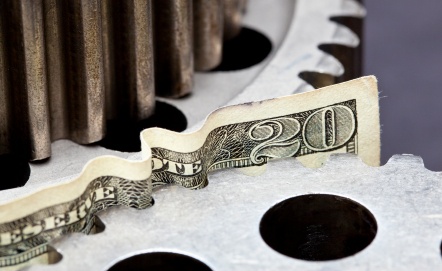Made in America: U.S. productivity down 1% in first quarter, wages rise 3%
by May 8, 2016 7:14 am 282 views

Editor’s note: Each Sunday, Talk Business & Politics provides “Made In America,” a round-up of state and global manufacturing news.
––––––––––––––
U.S. PRODUCTIVITY DOWN 1% IN FIRST QUARTER, WAGES RISE 3%
Nonfarm business sector labor productivity decreased at a 1.0% annual rate during the first quarter of 2016, the U.S. Bureau of Labor Statistics recently reported, as output increased 0.4% and hours worked increased 1.5%. From the first quarter of 2015 to the first quarter of 2016, productivity increased 0.6% percent.
Unit labor costs in the nonfarm business sector increased 4.1% in the first quarter of 2016, reflecting a 3.0% increase in hourly compensation and a 1.0% decrease in productivity. Unit labor costs increased 2.3% over the last four quarters. Labor productivity, or output per hour, is calculated by dividing an index of real output by an index of hours worked of all persons, including employees, proprietors, and unpaid family workers.
DELOITTE SURVEY SEES BULLISH M&A OUTLOOK THIS AFTER RECORD DEALS IN 2015
Following the biggest dollar year ever for mergers and acquisition (M&A) deals in 2015, an overwhelming 87% of executives at U.S. corporations and private equity firms predict their organizations’ deal volume will continue, or even increase in 2016, according to the findings of the third annual “Deloitte M&A Trends Report, 2016 edition.” This positive market sentiment is despite the 40% drop in U.S. deal volume in the first quarter of 2016, compared to the first quarter of 2015, the report says.
That lackluster start to the year, however, likely helped identify ongoing areas of concern for survey respondents.
Global economic uncertainty (32% of corporate respondents, 26% of private equity respondents) was ranked most likely to impact deal pursuit, financing and closing in the next 12 months. For the first time in the history of the survey, economic conditions also ranked as most important determinant of deal success among both corporate executives (31%, up from 25% in 2015) and private equity respondents (37%, up from 28% in 2015). Notably, few respondents (14% of corporate respondents, 16% of private equity respondents) ranked the 2016 U.S. elections as most likely to influence deal making in the coming year.
MITSUBISHI’S INDUSTRIAL ARM MOVES U.S. HEADQUARTERS FROM NEW YORK TO HOUSTON
Mitsubishi Heavy Industries America Inc. (MHI), which mothballed its plans to build a $100 million wind manufacturing plant in the Fort Smith area four years ago, said on Tuesday that it has begun full-scale operations at its newly relocated Head Office in Houston from its previous base in New York. The move to Texas allows MHI to be nearer to its concentration of customers in the most robust and growing areas of its business, including environmental systems, chemical plants and compressors, company officials said.
MHI also operates its oil and gas business in Houston, along with several other manufacturing subsidiaries that build everything from forklifts to compressors and industrial power systems. The Japanese industrial giant employees more than 1,200 employees in the state of Texas.
